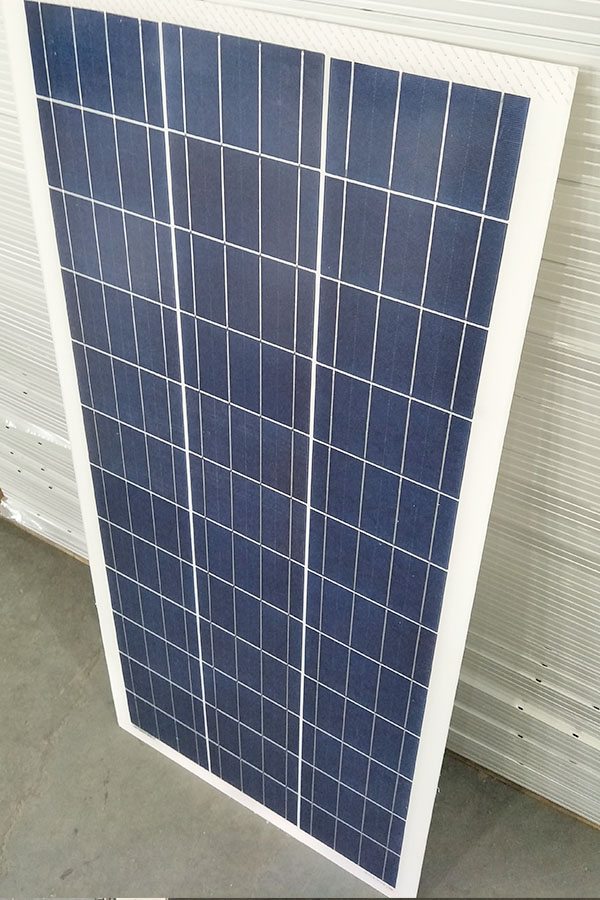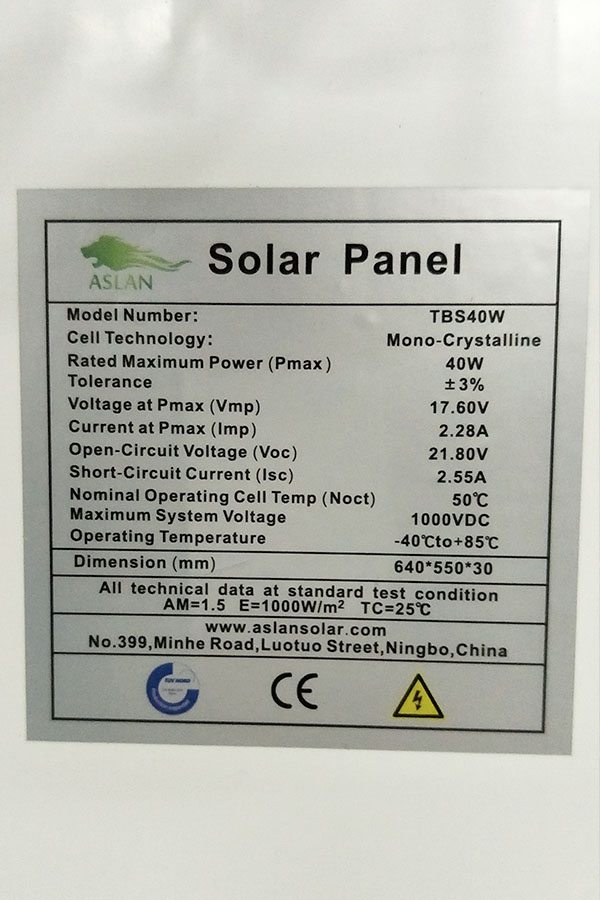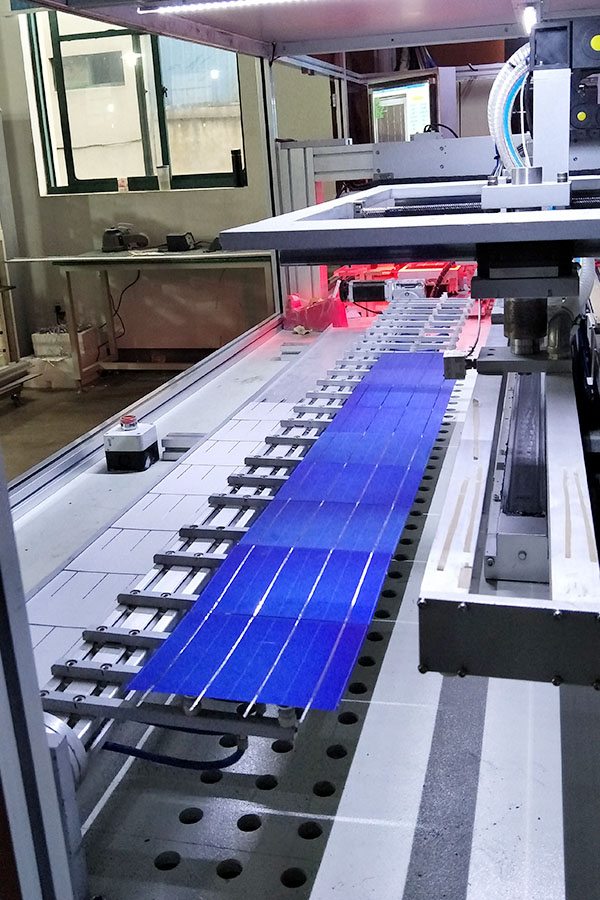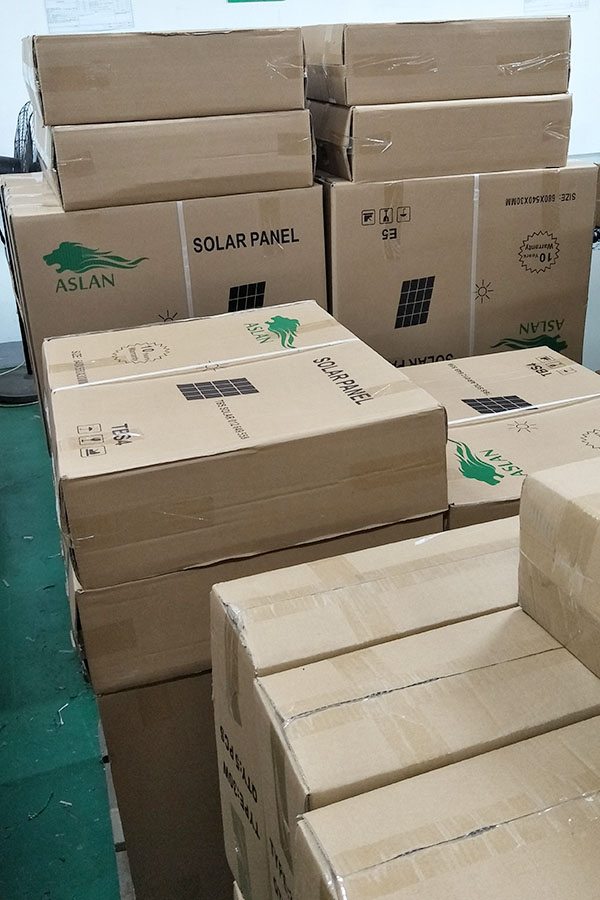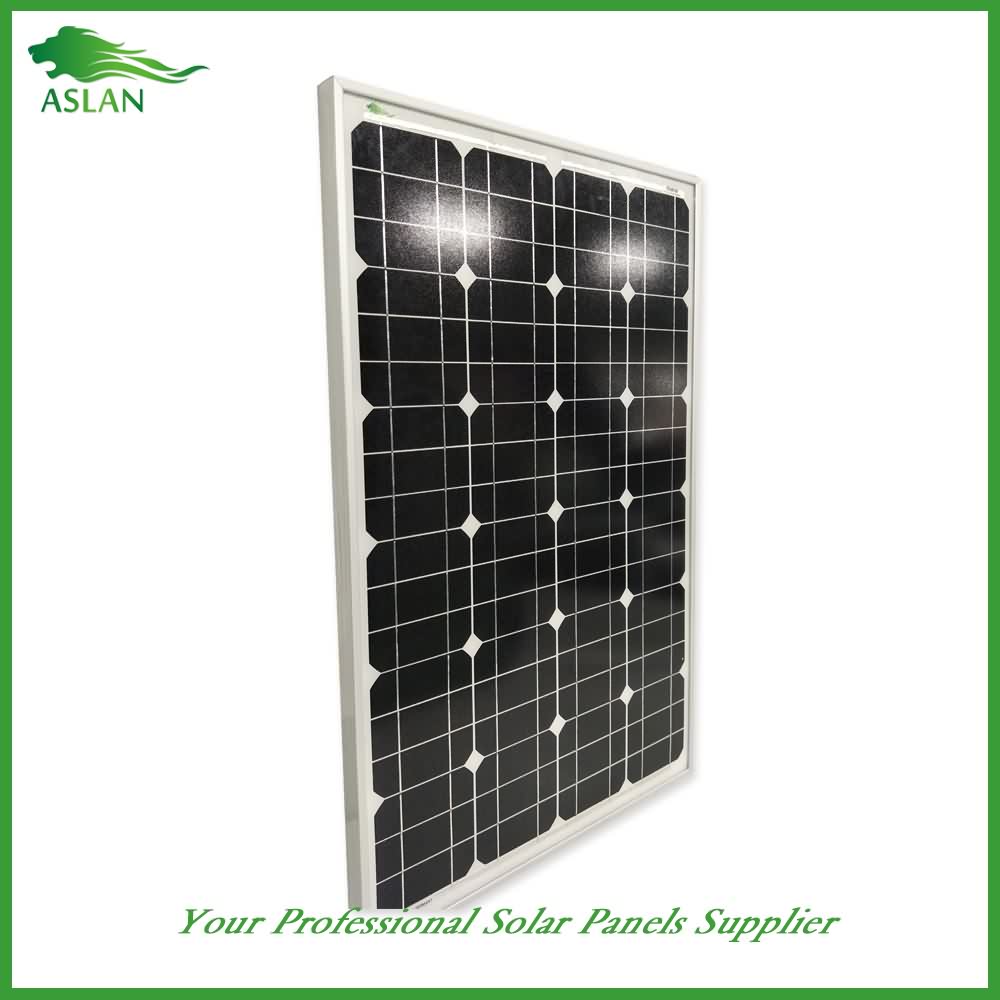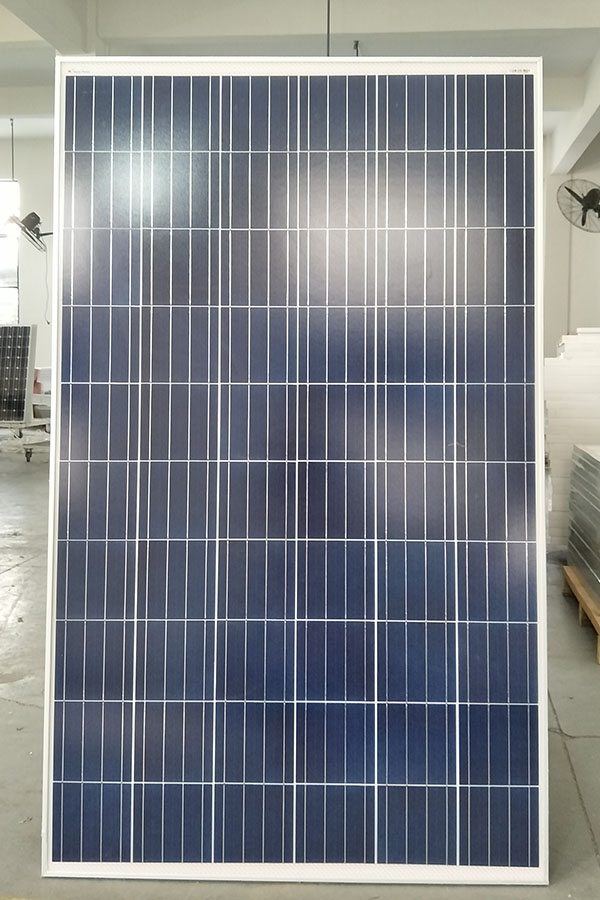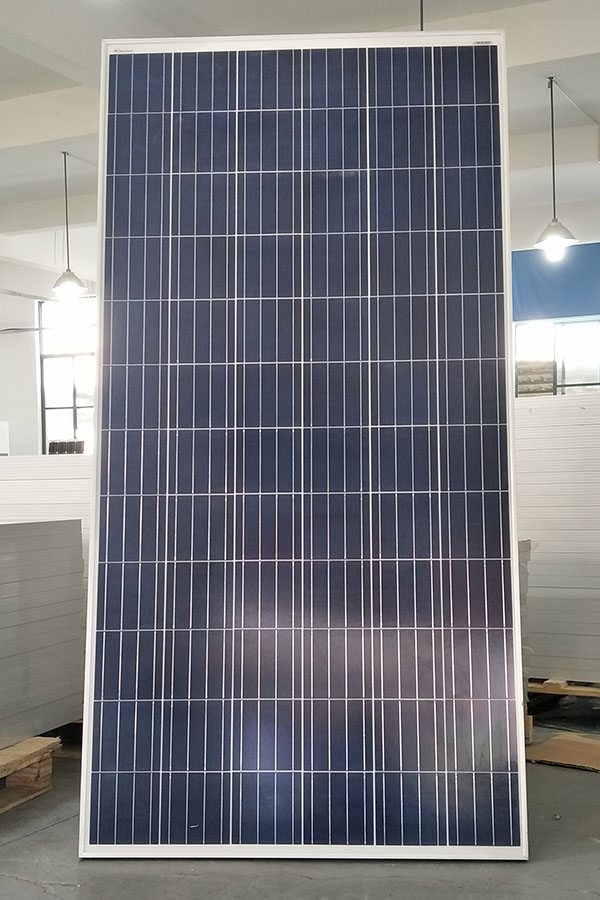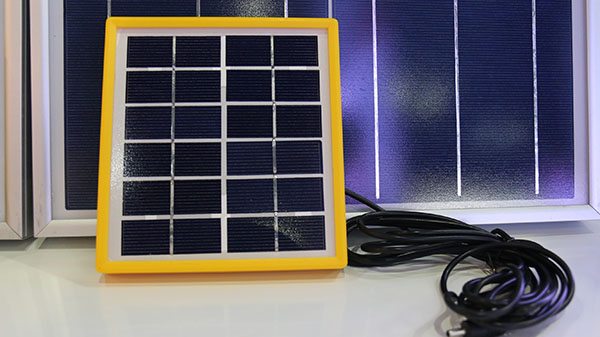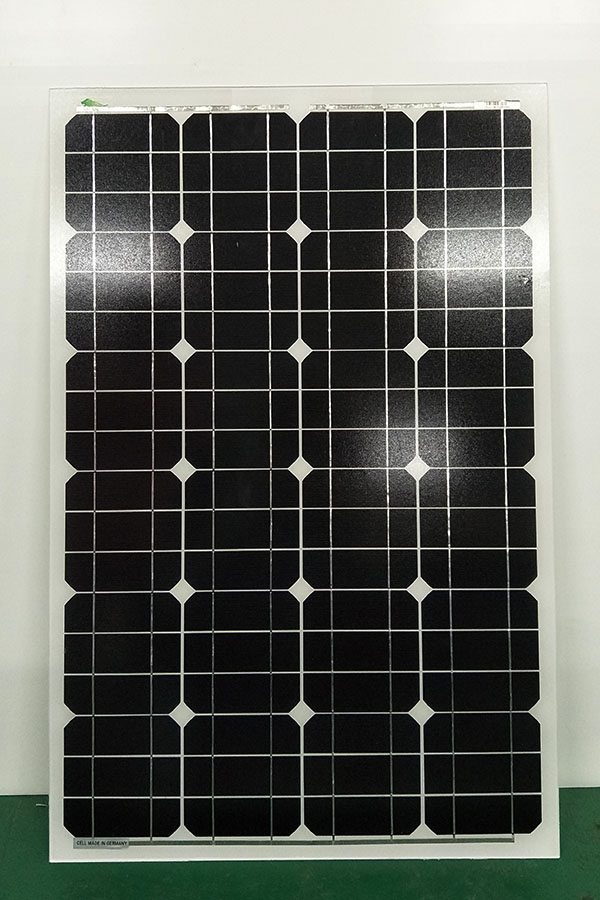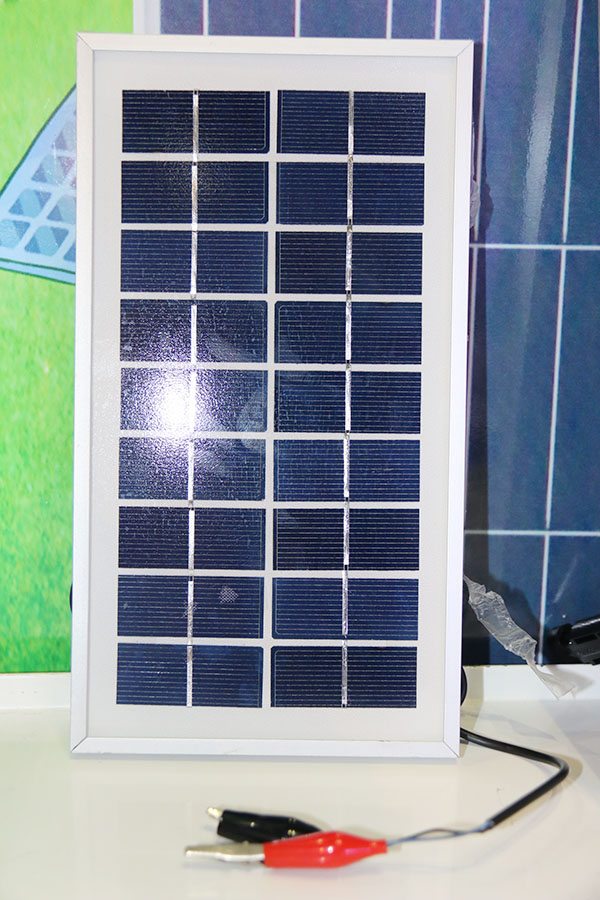Factory wholesale Poly-crystalline Solar Panel 80W in Southampton
Short Description:
We not only will try our best to offer excellent services to every customer, but also are ready to receive any suggestion offered by our customers for Factory wholesale Poly-crystalline Solar Panel 80W in Southampton, we are looking forward to even greater cooperation with overseas customers based on mutual benefits. Please feel free to contact us for more detail
Poly-crystalline Solar Panel 80W
Technical parameter
Maximum Power(W) 80W
Optimum Power Voltage(Vmp) 18.13V
Optimum Operating Current(Imp) 4.70A
Open Circuit Voltage(Voc) 21.79V
Short Circuit Current(Isc) 5.16A
Mechanical Characteristics
Cell Type Poly-crystalline 156x104mm (6 inch)
No of Cell 36 (4x9pcs)
Dimensions 1008x678x35mm
Weight 8.3KGS
Front Glass 3.2mm,High Transmission, Low Iron,Tempered Glass
Junction box IP65 Rated
Output Cable TUV 1×4.0mm2/UL12AWG,Length:900mm
Temperature and Coefficients
Operating Temperature(°C): -40°C ~ + 85°C
Maximum System Voltage: 600V(UL)/1000V(IEC) DC
Maximum Rated Current Series: 15A
Temperature Coefficients of Pmax: -0.435%
Temperature Coefficients of Voc: -0.35%
Temperature Coefficients of Isc: 0.043%
Nominal Operationg Cell Temperature (NOCT): 47+/-2°C
Materials of solar panel
1).Solar Cell——Poly-crystalline solar cell 156*104mm
2).Front Glass——-3.2mm, high transmission, low iron, tempered glass
3).EVA——-excellent anti-aging EVA
4).TPT——-TPT hot seal made of flame resistance
5).Frame——anodized aluminum profile
6).Junction Box——-IP65 rated, high quality, with diode protection
Superiority: high quality anodized aluminum frame, high efficiency long life, easy installation, strong wind resistance, strong hail resistance.
Features
1. High cell efficiency with quality silicon materials for long term output stability
2. Strictly quality control ensure the stability and reliability, totally 23 QC procedures
3. High transmittance low iron tempered glass with enhanced stiffness and impact resistance
4. Both Poly-crystalline and Mono-crystalline
5. Excellent performance in harsh weather
6. Outstanding electrical performance under high temperature and low irradiance
Quality assurance testing
Thermal cycling test
Thermal shock test
Thermal/Freezing and high humidity cycling test
Electrical isolation test
Hail impact test
Mechanical, wind and twist loading test
Salt mist test
Light and water-exposure test
Moist carbon dioxide/sulphur dioxide
Subscribe My Channel For More Videos
https://www.youtube.com/channel/UCuhA6PQax62fXL5WuYmt-fw
Best Battery For Solar System link
solar charge controller installation Hindi/Urdu
Solar Controller part 2
300 watt solar panel price in Pakistan hindi/urdu
300 Watt Solar system Benefits In Details Hindi/Urdu
Info: masmedia9@hotmail.com
These are the only solar module support structures in the world with water inside them! (Pat. Pending).
Thermo Rack photovoltaic structures are extruded using T5 naval aluminum using the largest extrusion press in Europe (Patent Pending).
Thermo Rack structures can be from 7 to 21 meters long.
Water inside the structures themselves cools solar modules on contact, without expensive module chillers and without any hydraulic connections! (A quantum leap forward).
The system uses polycrystalline modules that are junction box free (the backside is flat) which allow front side cabling.
Using this technique, water cooled photovoltaic plants are economical and the resulting hot water and electricity can be used for cheap desalination of drinking water.
Traditional PV-T is now obsolete:
Traditional PhotoVoltaic-Thermal technology uses what are know as chillers to cool solar modules. PV-T is short for Photovoltaic-Thermal, a hybrid system which boosts solar module performance via water cooling. The byproduct of the cooling process is hot water, heat useful for distillation or reverse osmosis purposes.
Chiller drawbacks:
Chillers are too expensive: they can cost up to 100 euro each depending on the material used and their quality.
Chillers must be coupled to a solar module: this takes labour and does not result in uniform cooling. Per necessity, the chiller must have an area cut out to avoid the module backside junction box. Thus the solar cell above the junction box remains hot while all the other cells are cooled. This significantly lowers the boost in generating capacity.
Chillers have a low flow rate: the serpentine that winds its way through a chiller is an 8mm tube. That makes for low cooling power.
Chillers must be manually connected to the cooling circuit: this requires up to 3 or more hours of labour per chiller using many costly plastic parts, flexible hoses, teflon, and worst of all holes must be bored into water supply tubes which then must then be threaded! This costs too much and produces a complex unrelyable system made of various materials all with different expansion and contraction rates.
Thermo Rack photovoltaic structures do away with chillers completely because they are an extruded solid state cooling solutions in T5 naval aluminum made in Switzerland (Patent Pending).
The Thermo Rack philosophy is the following: If you are building a water cooled solar park in an arid climate to power a major desalination plant, you will build a ground based large scale solar system that generates many megawatts.
Since the plant will be ground based, it will need support structures. Since you have to buy them, if those same support structures also provide water cooling you kill two birds with one stone! The resulting water cooled plant will be far less costly than a traditional PV-T system because it will have considerably less tubing and require no labour to connect costly chillers!!!
It will also be extremely relyable, and its high flow rate will produce huge amounts of hot water for a fast return on investment.
Thermo Rack structures can be from 7 to 21 meters long! Each structure only requires one 1.25 inch cold water input connection (bottom left) and one 1.25 inch hot water output connection (top right).
The water inside such structures cools solar modules on contact, without expensive module chillers and without any module hydraulic connections! This eliminates huge labour costs.
Thermo Rack uses European polycrystalline modules custom made for Thermo Rack at no extra cost. The modules are junction box free, and provide front side cabling! This means that the backside of the module is completely flat. Thermal paste can be applied to further enhance cooling. In any case 100% uniform cooling of all the solar cells is achieved.
Please note that overheating of modules in arid climates has caused the complete destruction of some PV plants due to arc fires. Cool modules produce more, live longer and don’t burn! With the junction cables frontal, maintenance is easy and arc fire issues are all but eliminated.
Water cooled photovoltaic plants are thus NOW economical and the resulting hot water and electricity can be used for cheap desalination of drinking water.
We are currently granting local Thermo Rack exclusivities to franchisees worldwide.
